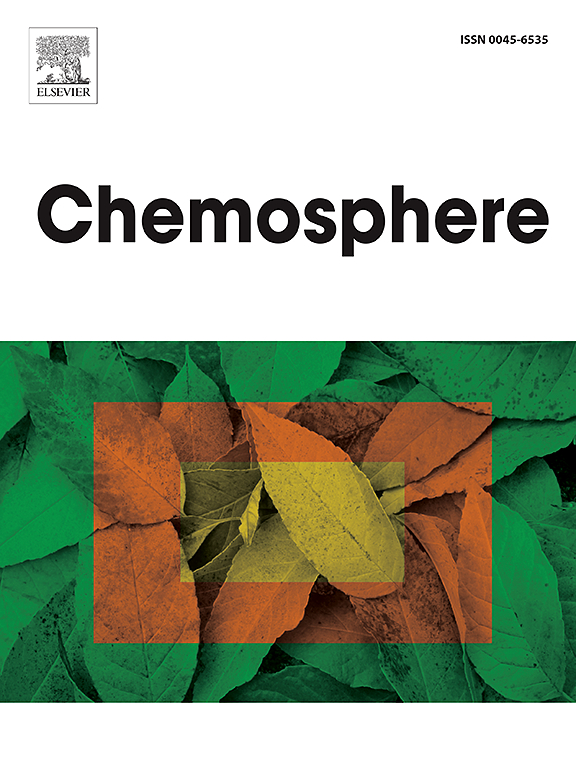Intersecting circular economy and child health: A scoping review of legacy brominated flame retardants in plastic childcare products and toys
IF 8.1
2区 环境科学与生态学
Q1 ENVIRONMENTAL SCIENCES
引用次数: 0
Abstract
Polybrominated diphenyl ethers (PBDEs) and hexabromocyclododecane (HBCDD) are persistent organic pollutants (POPs) banned under the Stockholm Convention due to their severe health effects, including endocrine disruption, neurodevelopmental problems, and cancer. Historically used in electrical and electronic equipment (EEE), vehicles, furniture, and building materials, these chemicals persist in recycled plastics and have been found in children's products.
Our scoping review synthesized emerging literature to assess the extent of these chemicals in children's products. Of 799 initial results, 28 studies met our inclusion criteria after removing duplicates and excluding those that met exclusion criteria.
The 28 studies revealed widespread presence of legacy PBDEs and HBCDD in plastic childcare products and toys, including toys embedded in chocolates, often at concentrations exceeding the Basel Convention's low POP content limits. This widespread contamination stems from weak regulation of recycling practices in the circular economy, the use of recycled and potentially contaminated virgin plastics, and the absence of specific standards for POP-BFRs content in recycled plastics and children's products.
Children's unique vulnerabilities make this issue critical. Global actions are, therefore, needed to address this problem. The Basel Convention should adopt stricter POP content limits to prevent the recycling of plastics with high PBDEs and HBCDD levels. Both the Stockholm and Basel Conventions should establish safe limits for these chemicals in recycled plastics and ban contaminated recycled plastics in children's products to ensure a safer circular economy. Future research should apply a lifecycle approach to identify and mitigate all sources of legacy PBDEs and HBCDD in children's products.

循环经济与儿童健康的交叉:塑料儿童保育产品和玩具中遗留溴化阻燃剂的范围审查
多溴联苯醚(PBDEs)和六溴环十二烷(HBCDD)是《斯德哥尔摩公约》禁止的持久性有机污染物(POPs),因为它们对健康有严重影响,包括内分泌干扰、神经发育问题和癌症。这些化学物质历来用于电气和电子设备(EEE)、车辆、家具和建筑材料,它们存在于回收塑料中,也存在于儿童产品中。我们的范围综述综合了新兴的文献来评估这些化学物质在儿童产品中的程度。在799个初步结果中,在去除重复并排除符合排除标准的研究后,有28个研究符合我们的纳入标准。这28项研究表明,传统的多溴二苯醚和六溴二苯醚广泛存在于塑料儿童保育产品和玩具中,包括嵌入巧克力的玩具,其浓度往往超过巴塞尔公约规定的低POP含量限制。这种广泛的污染源于对循环经济中回收做法的监管不力,使用回收和可能受污染的原生塑料,以及缺乏对回收塑料和儿童产品中POP-BFRs含量的具体标准。儿童独特的脆弱性使得这个问题至关重要。因此,需要采取全球行动来解决这一问题。《巴塞尔公约》应采用更严格的持久性有机污染物含量限制,以防止多溴二苯醚和六溴二苯醚含量高的塑料被回收。《斯德哥尔摩公约》和《巴塞尔公约》都应规定再生塑料中这些化学物质的安全限量,并禁止在儿童产品中使用受污染的再生塑料,以确保更安全的循环经济。未来的研究应采用生命周期方法来识别和减少儿童产品中遗留的多溴二苯醚和六溴二苯醚的所有来源。
本文章由计算机程序翻译,如有差异,请以英文原文为准。
求助全文
约1分钟内获得全文
求助全文
来源期刊

Chemosphere
环境科学-环境科学
CiteScore
15.80
自引率
8.00%
发文量
4975
审稿时长
3.4 months
期刊介绍:
Chemosphere, being an international multidisciplinary journal, is dedicated to publishing original communications and review articles on chemicals in the environment. The scope covers a wide range of topics, including the identification, quantification, behavior, fate, toxicology, treatment, and remediation of chemicals in the bio-, hydro-, litho-, and atmosphere, ensuring the broad dissemination of research in this field.
 求助内容:
求助内容: 应助结果提醒方式:
应助结果提醒方式:


